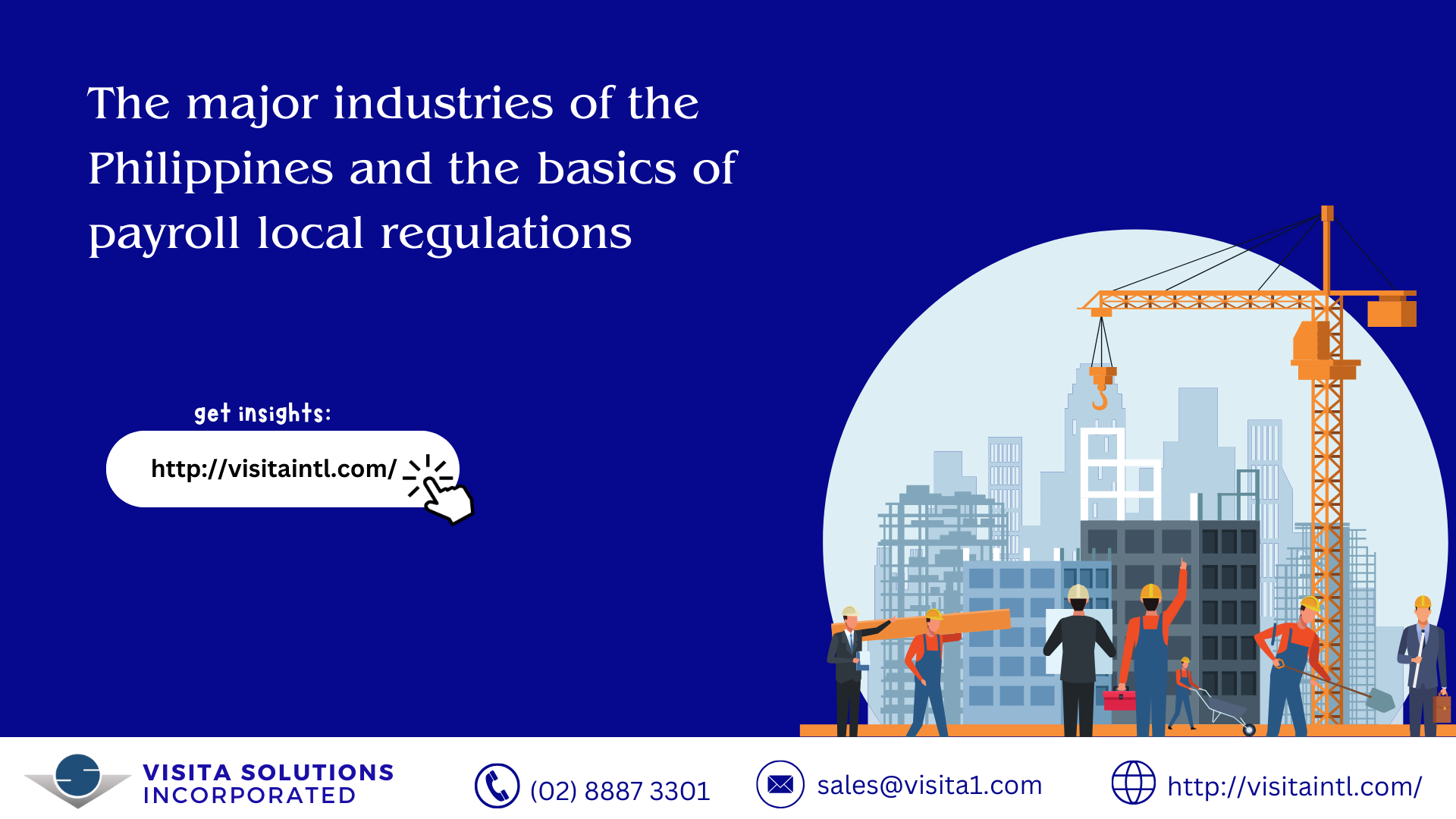
The Philippines, as a developing country, is one of the most dynamic in the Asia-Pacific region. Although the Philippines is known for its tourist attractions, the Philippine economy contributed significantly in Asia making it the world’s 36th largest by nominal GDP and 15th largest in Asia in 2023. The largest sector of its GDP is services covering more than 61%, followed by industrial and agriculture at about 30% and 9%, respectively.
From the Philippine 1980 economy, the country has gradually shifted from an agricultural-based to an industrial and service-oriented sector. In the year 2023, the Philippines’ largest industries are Real Estate, E-commerce, Construction, Tourism, and BPO, Business, & IT industry. The Philippine economy participates and contributes to the top 10 Global Biggest Industries by revenue, arranged in order: Global Wireless Telecommunications Carriers, Global Life & Health Insurance Carriers, Global Pension Funds, Global Commercial Real Estate, Global Car & Automobile Sales, Global Car & Automobile Manufacturing, Global Direct General Insurance Carriers, Global Commercial Banks, Global Oil & Gas Exploration & Production, and Global Auto Parts & Accessories Manufacturing.
These major industries wouldn’t be able to contribute to the global economy without the workers behind each company per industry. As the economy keeps on rising, so as the employee market. Human capital has always been the key component for a company to succeed. The performance of one employee affects the performance of the team which contributes to the overall performance of the company. Every company in the industry has to have a proper approach to human resource management and payroll structure, otherwise, their key talents may join their competitors.
The payroll structure may be created in comparison to the standard compensation in the market or may be attributed to the current payroll policy of the company. Regardless, payroll compensation and benefits, with complementary wellness programs, must address the satisfaction of employees to retain them.
Employers nowadays strengthen employee acquisition and retention by initiating employee benefits and HR camaraderie & self-empowerment programs. While the above-the-line employee management programs sound good, the payroll structure should still adhere to local regulations regardless of the HR initiatives.
The basics of payroll regulations in the Philippines start with minimum wage. Minimum wage differs per region and changes over time so proper monitoring of the trend should be taken seriously. However, employees earning based on monthly rates with allowances are another payroll structure. The other considerations that an employer must observe are the holidays and how to compute them. The computation differs from regular holidays and special-non working holidays. The holiday payment is a premium payment including the overtime pay and night differential. Conversely, deductions can be made from lates, absences, and undertime. All these items are factors to consider in the “gross earning” payment. On the gross deduction, the computation includes statutory contributions (SSS, Philhealth, and Pag-ibig), tax, and loans including company deductions such as company loans and cash advances, among others. The difference between the gross earnings and the gross deductions is the net pay.
In a more complex context, the statutory contributions of SSS, Philhealth, and Pag-ibig as well as the tax calculations have their respective internal rules and regulations (IRR) which sets standards on how to properly compute these deductions. The statutory contributions are the basis of the benefits due to every member/employee as well as the basis of their loan proceeds. All these contributions and loan payments are to be deducted from the employees and remitted to the government on time. On the context of compensation schedule, it can be distributed daily, weekly, semi-monthly, and monthly. By the end of the year, employers are expected to pay converted leaves, 13th month pay, tax refunds, and report alphalist, among others. These payments are also applicable to resigning and separated employees along with their last pay & quitclaims.
Confusing and complicated as it may seem, an intervention of an automated payroll system encapsulates the process in just a few clicks. Visita Solutions is the leading payroll software company in the Philippines. Both VSiPayR and VSiPayRPlus address the context above and incorporate the internal company policy of its clientele through its robust customizations. VSiPayR is a desktop-based payroll system while the VSiPayRPlus is an online & cloud-based payroll system. These systems can be integrated as well with other functional activities such as accounting, inventory, employee petty cash, and other custom-modules.
If you’re looking for a payroll system, Visita Solutions is the answer.
Begin with your hassle-free payroll processing and start your automation with us.
Email us at sales@visita1.com or call us at +(632) 887 3301 for request of demo and quotation.
You may also fill in this form to expedite your request: https://visitaintl.com/free-demo/

